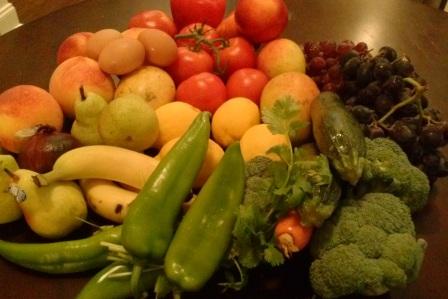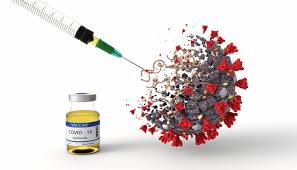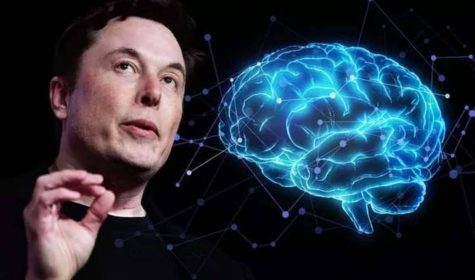Weird Science: There’s More to Food than Keeping People Alive

Fruits and vegetables add to the color and happiness of the world.
You probably won’t want to eat lunch while you read this.
When you hear about diets, do you think about weight loss? What’s a normal human diet? Are people even meant to consume the breads, fries, milk, sugar, and meats we eat nowadays?
Obesity is a major modern health concern. Another serious public health concern is rising rates of chronic disease, from the widely publicized cancer and heart disease to lesser known autoimmune diseases, such as fibromyalgia.
Diets don’t exist just to combat obesity. Some health professionals theorize that obesity is only a symptom of our underlying lifestyle problems. One major problem with society’s health is the Standard American Diet. It’s not only fast food; it’s almost everything you find in a grocery store, minus the fresh produce section. Sound crazy? But really: pizza, Kids Cuisine, and refined sugar aren’t natural states of food, and they might not even be natural to eat.
Fast food restaurants and frozen, microwavable foods were created to make the eating process faster, but taking advantage of these modern conveniences steals something from our relationship with food. We lose track of where it comes from, and we lose our control over how it’s prepared. These factors may not seem important, but when meat comes from a contaminated facility and frozen meals contain extra salt and sugar to appeal to our taste buds, the consequences can include sickness and internal inflammation.
Research has definitely linked America’s high-fat, high-sugar, low-fiber diet to heart disease, high blood pressure, and type II diabetes. But why would these factors contribute to disease? Why can’t we just eat anything we want and be done with it?
One theory is that our dearth of fruit and vegetable consumption keeps us from maintaining a large enough store of antioxidants, so the inflammatory chemicals produced during digestion are not neutralized. These chemicals then enter our bloodstreams and injure cells, leading to immune havoc. The plaque in blood vessels that causes high blood pressure may actually be the body’s attempt at a bandage for vessel walls injured by these inflammatory chemicals!
Here’s the weird science part of the article: another theory states that the bacteria inside our digestive tracts mediate food and inflammation. Sounds gross at first glance! However, many of the little critters that populate our guts are critical to our health, digesting food particles that we cannot digest and producing essential compounds such as vitamin K.
According to Elaine Gottschall’s Specific Carbohydrate Diet and clinical research, antibiotics, unhealthy eating, and industrial chemicals that enter our digestive tracts kill the ‘good bacteria’ in our systems and allow ‘bad bacteria’ to colonize. In other words, the bacterial population in our digestive systems deviates from an ideal, healthy balance. (Fun fact: We’re born with sterile digestive systems. Our original bacterial balance comes from contact with the environment, especially our parents. This may be a reason why breastfeeding has been shown to be better for babies!)
With a bacterial imbalance, or dysbiosis, the excessive carbohydrates we eat are aggressively consumed by ‘bad’ bacteria, which produce toxins that inflame our bellies and bloodstreams. In addition, you may have been told not to eat anything with ingredients that you cannot pronounce. It’s easy to ignore this advice because food additives seem to be everywhere, but our immune systems may attack these foreign non-food particles; moreover, bacteria in an unbalanced gut flora react with these particles and produce inflammatory agents.
Using antibiotics to kill the bacteria would only make the inflammation worse if one continues to eat an unhealthy diet. Instead, eating a high-vegetable, high-protein, minimally processed diet without the processed snack foods and sugars of a typical American diet encourages a healthier bacterial population to develop. With a healthy gut able to absorb nutrients at full capacity, the body no longer needs excess food to meet nutrient requirements, and individuals experience healthy weight loss as a bonus. Thus, the success of the Paleo and Primal diets is explained. The gluten-free, casein-free diet also tends to avoid processed foods high in sugar because many foods containing those allergenic proteins, such as cookies, cake, bread, and ice cream, also contain much of the refined sugar we consume. Gottschall suggested that these types of diets could treat conditions that are considered incurable, including Crohn’s disease and autism.
Did you know that these conditions have connections with diet?
1. Acne
Eek! First parents said chocolate and pizza cause it, then doctors said those foods aren’t related at all. However, this research doesn’t mean food in general is irrelevant, only that people who stop eating chocolate or pizza still have pimples. But what if people cut out all refined sugars, fatty meats, and processed foods, and not just chocolate or pizza? Bloggers who have experimented with natural diets, such as the Paleo diet, have reported tremendous improvements in health, including clearer skin.
2. Depression
Research has linked depression with inflammatory markers in the bloodstream. People who eat a Mediterranean diet, high in vegetables, fish, and olive oil, show decreased symptoms and decreased amounts of these markers.
3. Fibromyalgia
This chronic condition does not have a known treatment yet. It affects mainly adult women, and symptoms include pain and tenderness without explanation, as well as fatigue. However, fibromyalgia patients who adopted a gluten-free diet experienced decreased amounts of pain.
4. Sunburn
Health and wellness bloggers have reported that, after maintaining an anti-inflammatory diet high in vegetables and low in processed foods for several months, they were more likely to tan than sunburn, despite being easily sunburned in the past. Perhaps a healthy diet increases our symptom threshold for physical damage caused by the environment.
There is no one-size-fits-all diet that eliminates disease in all people, but focusing on healthy foods that make our guts happy will make all of us happier in the end. Now you can resume your lunch knowing how food is more than just sustenance for our bodies.

















